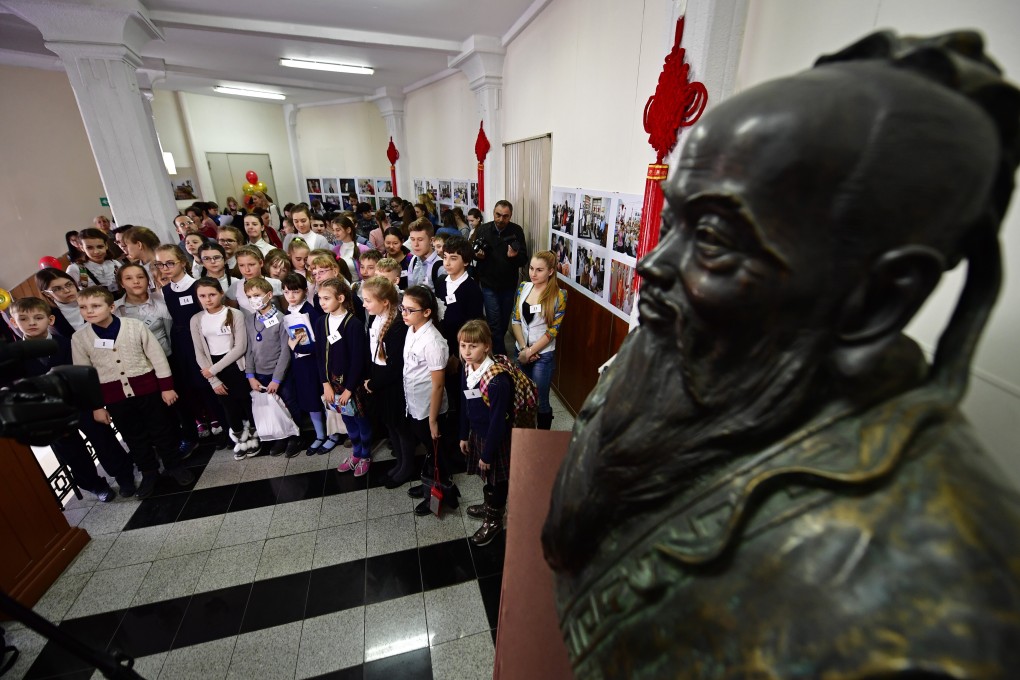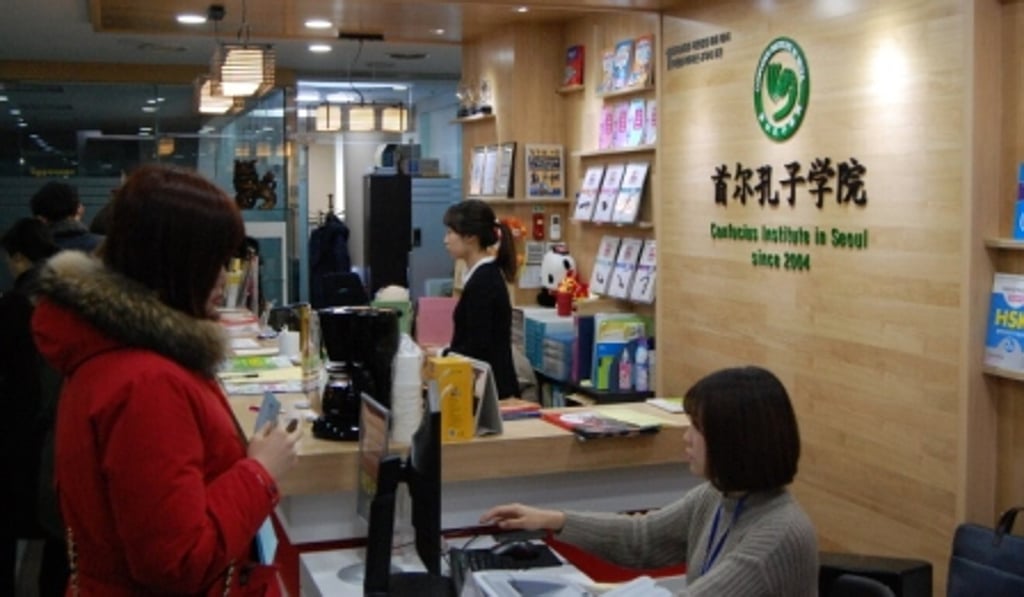Advertisement
Japan, South Korea join growing backlash against China’s Confucius Institutes
- Japanese PM Yoshihide Suga’s administration plans to launch a formal inquiry into the institutes, with activists in South Korea agitating for the same
- The institutes have come under fire in the US, Europe and Australia amid allegations they spread propaganda, interfere with free speech and spy
Reading Time:5 minutes
Why you can trust SCMP
66

A growing backlash against China’s Confucius Institutes, which offer a form of cultural outreach and Chinese language teaching overseas, has spread to South Korea and Japan as activists and politicians call for the state-backed learning centres to be investigated or shut down.
The institutes have already come under fire in the United States, Europe and Australia amid allegations they have been used by Beijing to spread propaganda, interfere with free speech at the universities that host them, and even commit espionage.
In South Korea, which with 22 Confucius Institutes has more than any other country, a group of right-wing activists have railed against the learning centres as “brainwashing tools” – while in Japan, Prime Minister Yoshihide Suga’s administration is launching an inquiry into their funding, operations and the extent of their influence.
Advertisement

The first ever Confucius Institute opened in Seoul’s Gangnam district in 2004 and after a rapid period of Chinese government-funded expansion, they can now be found in almost 160 countries with more than 500 institutes worldwide.
Advertisement
Billed as public educational partnerships between universities and colleges in China and those overseas, they are overseen by the Centre for Language Education and Cooperation – known as Hanban before a low-key rebranding last summer – which has been criticised for its close links to the Communist Party.
Advertisement
Select Voice
Select Speed
1.00x